Did you know that one in 50 Americans suffer from a herniated disc? If you are one of them, you understand how painful and frustrating it can be to sleep with a bulging or ruptured disc in your spine. You toss and turn, trying to find a comfortable position, but nothing seems to work. You wake up feeling stiff, sore, and exhausted. You wonder if you will ever get a good night’s sleep again.
You are not alone. Millions of people struggle with the same problem every night. But there is a solution: finding the best mattress for disc herniation relief. A good mattress can make a huge difference in how you feel and function. It can support your spine, relieve pressure, and reduce inflammation. It can also help you sleep better, which can improve your overall health and well-being.
But how do you find the best mattress for disc herniation? What are the factors you need to consider? What are the types of mattresses that are suitable for your condition? And where can you buy them? These are the questions we will answer in this blog post. We will share our expertise and experience on the topic based on the latest research and customer reviews. We will also provide you with some tips and recommendations on how to choose the best mattress for disc herniation relief.
Table of Contents
Understanding Herniated Discs
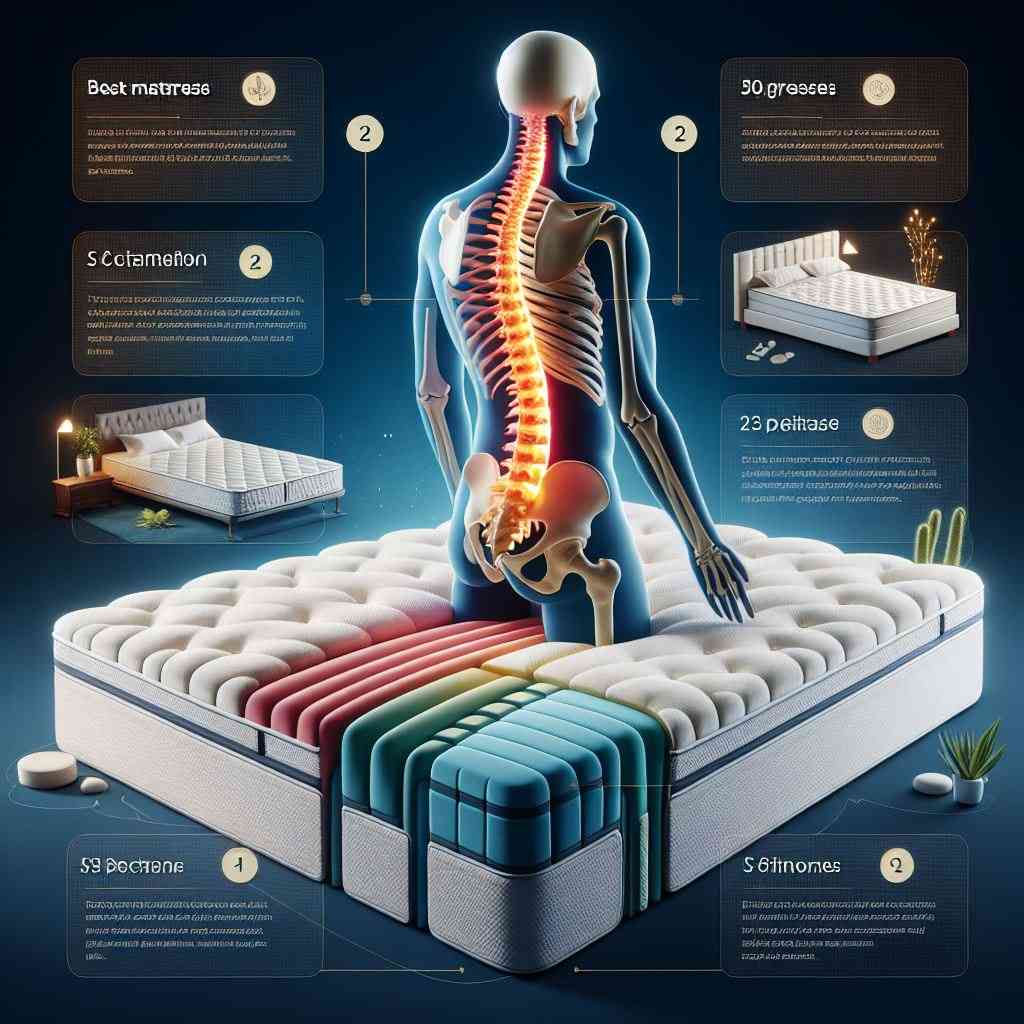
What are herniated discs, and how do they affect your spine? A herniated disc, also known as a slipped disc or a ruptured disc, is a condition where the soft inner part of a spinal disc bulges out through a tear in the tough outer layer.
This can put pressure on the nearby nerves and cause pain, numbness, or weakness in the back, neck, arms, or legs. A herniated disc can occur in any part of the spine, but it is more common in the lower back and the neck.
Herniated discs are one of the most frequent causes of back and neck pain in the United States. According to the American Association of Neurological Surgeons up to 2% of adults experience a herniated disc each year, and about 5% to 20% of them have symptoms that last for more than six weeks. Herniated discs can affect anyone, but they are more likely to occur in people between 30 and 50 years of age, as the discs lose water and flexibility with aging. Some factors that can increase the risk of herniated discs are:
- Being overweight or obese
- Having a physically demanding job or hobby
- Having a family history of disc problems
- Smoking or using tobacco products
- Having poor posture or ergonomics
Herniated discs can have a significant impact on your quality of life and your ability to perform daily activities.For example, a study by the National Spine Health Foundation found that patients with herniated discs reported an average of 8.4 days of missed work per year, and 43% of them had difficulty sleeping. Moreover, herniated discs can lead to chronic pain and disability if left untreated.
Therefore, it is vital to seek medical attention if you have persistent or severe symptoms of a herniated disc.
In the next section, we will discuss the best types of mattresses for herniated discs and how they can help you sleep better and feel better.
Importance of Choosing the Right Mattress

Choosing the right mattress is crucial for anyone who suffers from disc herniation. A suitable mattress can not only help you sleep better but also reduce your pain and improve your spinal health. How? By providing the right balance of pressure relief, support, and alignment for your spine and body.
Pressure relief is the ability of a mattress to cushion your pressure points, such as your hips, shoulders, and lower back. A mattress that offers good pressure relief can prevent or ease the nerve compression caused by a herniated disc and thus reduce inflammation and pain. A mattress that lacks pressure relief can worsen your condition and make you toss and turn all night.
Support is the ability of a mattress to hold your body weight and keep your spine in a neutral position. A mattress that offers good support can prevent or correct the spinal misalignment that can result from a herniated disc and thus improve your posture and mobility. A mattress that lacks support can cause your spine to sag or curve and, therefore, increase the stress and strain on your discs and nerves.
Alignment is the ability of a mattress to match your sleeping position and personal preferences. A mattress that offers good alignment can adapt to your body shape and size and thus provide optimal comfort and pressure relief. A mattress that lacks alignment can force you to sleep in an unnatural or uncomfortable position and, therefore, aggravate your symptoms and disrupt your sleep quality.
But how do you find a mattress that offers the right balance of pressure relief, support, and alignment for your disc herniation? The answer depends on several factors, such as:
- Mattress type: There are different types of mattresses, such as memory foam, latex, hybrid, innerspring, etc. Each type has its advantages and disadvantages for disc herniation, depending on its construction, materials, and features. For example, memory foam mattresses are known for their excellent pressure relief, but they can also trap heat and cause you to sleep hot. Latex mattresses are known for their natural resilience and durability, but they can also be expensive and heavy. Hybrid mattresses are known for their combination of comfort and support, but they can also be noisy and prone to sagging. Innerspring mattresses are known for their affordability and availability, but they can also be firm and bouncy.
- Firmness: There are different levels of firmness, ranging from soft to firm. The ideal firmness for disc herniation depends on your sleeping position, weight, and comfort preference. For example, side sleepers usually need a softer mattress to relieve their pressure points and align their spine. Back sleepers typically need a medium-firm mattress to support their lower back and maintain their natural curve. Stomach sleepers usually need a firmer mattress to prevent their hips from sinking and causing spinal misalignment.
- Other factors: Other factors that can affect your mattress choice include your budget, lifestyle, health conditions, allergies, etc. For example, if you have a limited budget, look for a mattress that offers good value and quality rather than a luxury or premium option. If you have a partner, look for a mattress that minimizes motion transfer and noise rather than a mattress that isolates movement and sound. If you have allergies, look for a mattress that is hypoallergenic and resistant to dust mites, mold, and bacteria rather than a mattress that is prone to harboring allergens and microbes.
As you can see, choosing the right mattress for disc herniation is a complex task. It requires careful research, comparison, and testing. But it is worth the effort, as a suitable mattress can make a huge difference in your pain relief and sleep quality. In the next section, we will review some of the best mattresses for disc herniation that are available on the market today.
Best Mattresses for Herniated Discs
If you are looking for the best mattresses for herniated discs, you may be overwhelmed by the number of options available on the market. How do you know which one is right for you? To help you narrow down your choices, we have reviewed some of the top mattresses recommended for disc herniation relief from competitors like Saatva, Helix Midnight, WinkBed, and more. Here are the highlights of each mattress:
- Saatva: Saatva is a hybrid mattress that combines a coil-on-coil innerspring system with a memory foam layer and a euro pillow top. It offers excellent support, pressure relief, and edge support, as well as a choice of three firmness levels: plush soft, luxury firm, and firm. Saatva is also eco-friendly, as it uses organic cotton, recycled steel, and natural latex in its construction. Saatva is ideal for back and stomach sleepers who need a firm and supportive mattress to keep their spine aligned and prevent their hips from sinking.
- Helix Midnight: Helix Midnight is a hybrid mattress that combines a pocketed coil base with a memory foam comfort layer and a breathable cover. It offers a medium-firm feel that is suitable for most sleepers, especially side sleepers who need a balance of comfort and support. Helix Midnight is also customizable, as you can take a sleep quiz to find the best match for your preferences and needs. Helix Midnight is excellent for couples, as it minimizes motion transfer and noise and has good temperature regulation and durability.
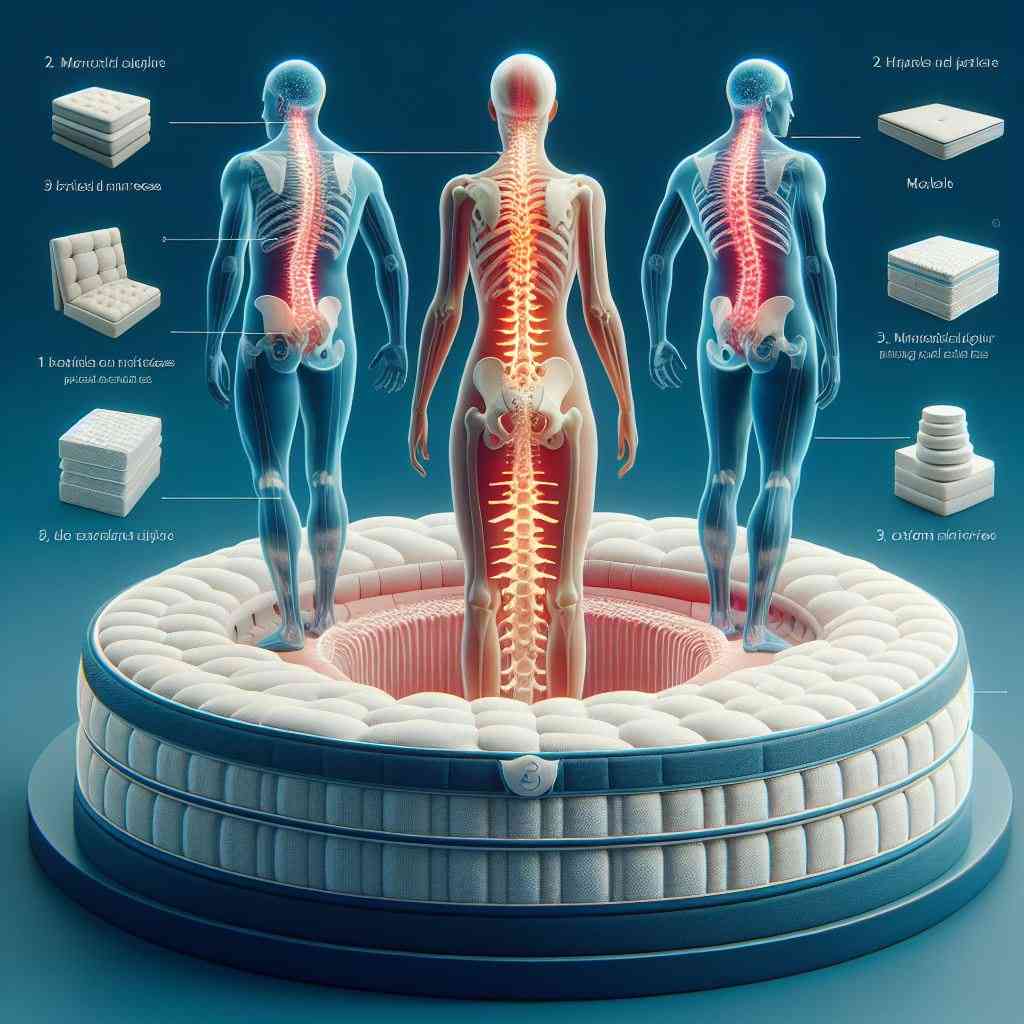
- WinkBed: WinkBed is a hybrid mattress that combines a dual-coil system with a gel-infused foam layer and a Tencel cover. It offers a luxurious feel and a high level of support, as well as a choice of four firmness levels: softer, luxury firm, firmer, and. WinkBed is also durable, as it uses high-quality materials and has a lifetime warranty. WinkBed is perfect for back and side sleepers who need a supportive and comfortable mattress that can relieve their pressure points and maintain their spinal alignment.
- Other mattresses: Other mattresses are also recommended for disc herniation relief, such as the Nectar (a memory foam mattress that offers good pressure relief and contouring), the Casper (a memory foam mattress that offers good zoned support and alignment), the Zenhaven (a latex mattress that offers good resilience and durability), and the Purple (a hybrid mattress that uses a unique grid-like layer that offers good pressure relief and airflow).
As you can see, there is no one-size-fits-all solution when it comes to the best mattresses for herniated discs. The best mattress for you depends on your sleeping position, weight, comfort preference, budget, and other factors. However, by following our guide and reviews, you can make an informed decision and find the best mattress for disc herniation relief. We hope you enjoyed this blog post and found it helpful. If you have any questions or comments, please feel free to share them below.
Factors to Consider in a Mattress
When you have a herniated disc, you need a mattress that can provide you with the best possible comfort and support for your spine. But how do you know what to look for in a mattress for herniated discs? What are the factors that can make or break your sleep quality and pain relief? In this section, we will detail the essential characteristics to look for in a mattress for herniated discs. These are:
- Support: Support is the ability of a mattress to hold your body weight and keep your spine in a neutral position. A supportive mattress can prevent or correct the spinal misalignment that can result from a herniated disc and thus improve your posture and mobility. A supportive mattress can also distribute your body weight evenly and prevent sagging or sinking. A supportive mattress should have a solid and durable base layer, such as coils, foam, or latex, that can resist compression and deformation over time.
- Spinal alignment: Spinal alignment is the ability of a mattress to match your sleeping position and personal preferences. A well-aligned mattress can adapt to your body shape and size and thus provide optimal comfort and pressure relief. A well-aligned mattress can also help you sleep in a natural and comfortable position and, therefore, avoid aggravating your symptoms and disrupting your sleep quality. A well-aligned mattress should have a responsive and conforming comfort layer, such as memory foam, latex, or gel, that can contour your curves and relieve your pressure points.
- Pressure relief: Pressure relief is the ability of a mattress to cushion your pressure points, such as your hips, shoulders, and lower back. A pressure-relieving mattress can prevent or ease the nerve compression caused by a herniated disc and thus reduce inflammation and pain. A pressure-relieving mattress can also help you relax and fall asleep faster, which can improve your overall health and well-being. A pressure-relieving mattress should have a soft and plush top layer, such as a pillow top, a quilted cover, or a wool layer, that can add extra cushioning and comfort.
- Sleeping position: Sleeping position is the ability of a mattress to suit your preferred way of sleeping, such as on your side, back, or stomach. Your sleeping position can affect how you feel and function, as it can influence your spinal alignment, pressure relief, and breathing. Your sleeping position can also determine the best firmness level for your mattress, as different positions require different levels of support and comfort. For example, side sleepers usually need a softer mattress to relieve their pressure points and align their spine. Back sleepers typically need a medium-firm mattress to support their lower back and maintain their natural curve. Stomach sleepers usually need a firmer mattress to prevent their hips from sinking and causing spinal misalignment.
As you can see, there are many factors to consider in a mattress for herniated discs. The best mattress for you depends on your individual needs and preferences, as well as the quality and features of the mattress. However, by following our guide and looking for these essential characteristics, you can find a mattress that can provide you with the best possible comfort and support for your spine. In the next section, we will give you some tips and recommendations on how to choose the best mattress for herniated discs.
Sleep Position Recommendations

Finding the ideal sleeping position for disc herniation can be challenging, but it can also make a big difference in your pain relief and sleep quality. Different sleeping positions can affect how your spine, discs, and nerves are aligned and compressed during the night. In this section, we will explore the pros and cons of the three central sleeping positions: back, side, and stomach. We will also provide some guidance on how to choose the proper sleep position and mattress firmness for your disc herniation.
- Back sleeping: Sleeping on your back can be beneficial for disc herniation, as it can keep your spine in a neutral position and reduce the pressure on your discs and nerves. However, back sleeping can also cause your lower back to arch and your neck to tilt, which can worsen your pain and discomfort. To prevent this, you can place a pillow under your knees and lower back to maintain the natural curve of your spine. You can also use a pillow under your head that supports your neck and keeps it aligned with your chest and back. Back sleepers usually need a medium-firm to firm mattress that can provide adequate support and prevent sagging.
- Side sleeping: Sleeping on your side can also be helpful for disc herniation, as it can relieve the tension in your lower back and neck. However, side sleeping can also cause your spine to twist and your hips and shoulders to sink, which can aggravate your pain and inflammation. To avoid this, you can place a pillow between your legs and knees to keep your hips and spine aligned. You can also use a pillow under your head that matches the distance between your neck and shoulder. Side sleepers usually need a soft to medium-firm mattress that can provide enough pressure relief and contouring.
- Stomach sleeping: Sleeping on your stomach can be harmful for disc herniation, as it can increase the strain on your lower back and neck. Stomach sleeping can also cause your spine to lose its natural curve and your discs to bulge or rupture. To prevent this, you can place a pillow under your hips and lower stomach to reduce the arching of your spine. You can also use a pillow under your head that is thin or flat or no pillow at all. Stomach sleepers usually need a firm mattress that can prevent their hips from sinking and causing spinal misalignment.
As you can see, there is no one-size-fits-all solution when it comes to the ideal sleeping position for disc herniation. The best sleeping position for you depends on your individual preferences, comfort, and pain level. However, by following our tips and recommendations, you can find a sleeping position that can provide you with the best possible pain relief and sleep quality. In the next section, we will review some of the best mattresses for disc herniation that are available on the market today.
Conclusion
We have reached the end of our blog post on how to discover the ultimate mattress for disc herniation relief. In this post, we have covered the following topics:
- What is disc herniation, and how does it affect sleep?
- What are the best types of mattresses for disc herniation?
- How to choose the best mattress for disc herniation based on your sleeping position, preferences, and budget?
- What are the benefits of sleeping on a good mattress for disc herniation?
We hope you have learned something new and valuable from our blog post. We also expect you have realized the importance of choosing the right mattress for your disc herniation. A good mattress can not only help you sleep better but also reduce your pain and improve your spinal health. It can also help you enjoy a happier and healthier life.
But don’t take our word for it. Try it for yourself. Explore the recommended mattresses for disc herniation relief that we have reviewed in this post. You can find them on our website, where you can also read more customer reviews and ratings. You can also contact us if you have any questions or need any assistance. We are always happy to help.
Thank you for reading our blog post. We appreciate your time and attention. If you liked this post, please share it with your friends and family who may also benefit from it. And don’t forget to leave a comment below and let us know what you think. We would love to hear from you. Until next time, sleep well and stay healthy.
FAQ
What mattress firmness is best for herniated disc?
A medium-firm mattress is usually the best choice for a herniated disc, as it can provide a balance of comfort and support for your spine and pressure points. A mattress that is too soft or too firm can worsen your pain and misalign your spine. Of course, the best firmness level may vary depending on your sleeping position, weight, and preference. You can always test out different mattresses before you buy one or look for a mattress that offers a generous trial period and warranty. Trust me, your back will thank you.
What kind of bed should you sleep in with a herniated disc?
The kind of bed that you should sleep in with a herniated disc depends on where the disc is located and what sleeping position is most comfortable for you. Generally, sleeping on your back or side can help relieve pressure on the disc and nerve, while sleeping on your stomach can increase the strain on your lower back and neck. To improve your sleep quality and pain relief, you should look for a bed that can keep your spine in a neutral position and cushion your pressure points. You can also use pillows or towels to support your knees, lower back, and neck. A reclining chair or an adjustable bed can also be helpful, as they can elevate your head and knees and reduce pressure on the disc.
What is the best mattress for lower disc problems?
The best mattress for lower disc problems is one that can offer good pressure relief, support, and alignment for your lower back and hips. A hybrid mattress that combines a pocketed coil base with a memory foam or latex comfort layer can be a good option, as it can offer a combination of comfort and support. A memory foam mattress can also be good, as it can contour to your body and relieve pressure points. However, you should avoid a mattress that is too soft or too firm, as it can cause your spine to sag or curve and aggravate your disc problems. You should also avoid a mattress that traps heat and causes you to sleep hot, as this can increase inflammation and pain.
Is a firm or soft mattress better for degenerative disc disease?
A firm or soft mattress can be better for degenerative disc disease depending on your sleeping position and body type. A firm mattress can provide more support and prevent your spine from losing its natural curve, which can be beneficial for stomach sleepers and people with more weight. A soft mattress can provide more pressure relief and contouring, which can be beneficial for side sleepers and people with less weight. However, a medium-firm mattress can offer a balance of comfort and support for most sleepers, especially back sleepers. The key is to find a mattress that can keep your spine aligned and reduce the pressure on your discs and nerves.
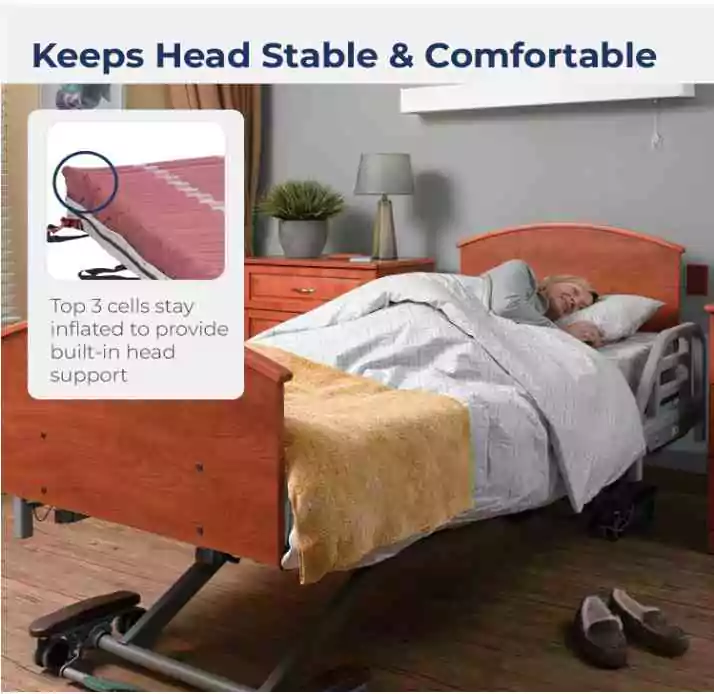
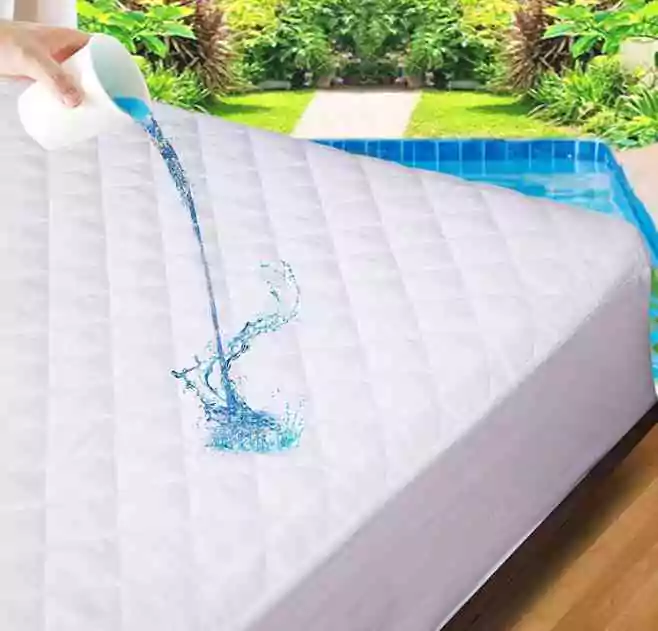

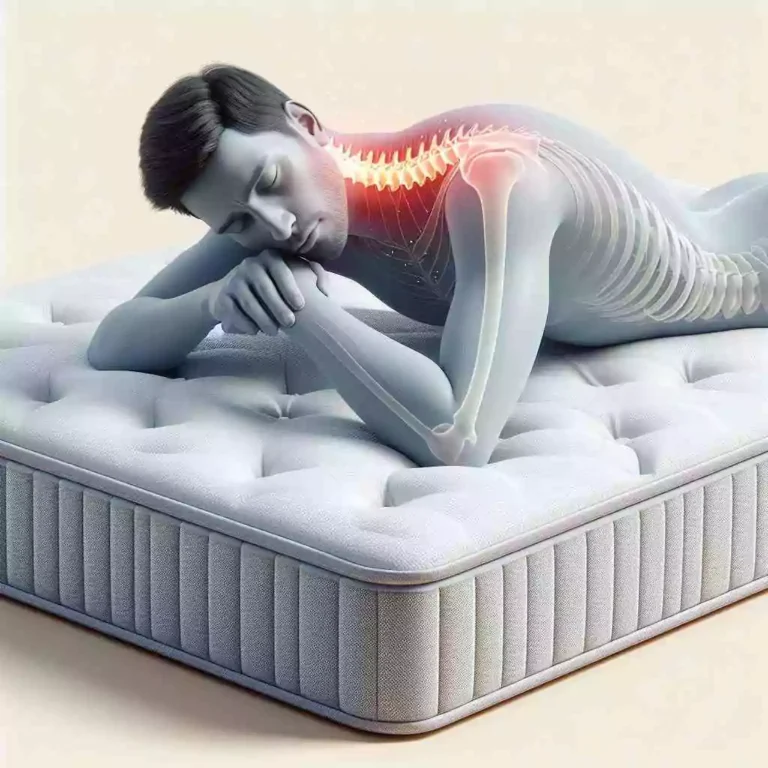



Thanks for sharing. I read many of your blog posts, cool, your blog is very good.
Hi! Do you know if they make any plugins to assist with Search
Engine Optimization? I’m trying to get my site to rank for some targeted keywords but I’m
not seeing very good success. If you know of any
please share. Kudos! You can read similar article here:
Eco blankets